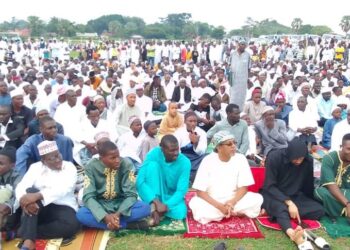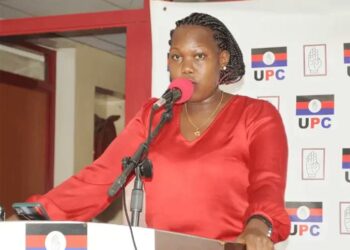By Gilbert Akampa Kakurugu
Mbarara
In a remarkable tale of courage and perseverance, Dinah Kobusingye, a resident of Engari sub-county in Kazo district, bravely fought against cervical cancer. After numerous tragic losses, Kobusingye found herself facing another formidable challenge. However, her story serves as an inspiration to women everywhere, as she highlights the importance of early detection and treatment.
Kobusingye’s traumatic journey began when she discovered that her first six children tragically passed away before reaching the age of six. Desperate for answers, she consulted a medical professional in Ibanda who provided valuable insight on the matter. Following treatment, she eventually welcomed her seventh child into the world.
However, her relief was short-lived. Kobusingye soon experienced concerning symptoms, including watery discharge. She promptly sought management at Mbarara, where she was informed of ulcerations on her cervix. The news was devastating, as she was diagnosed with cervical cancer. Facing a difficult decision, she chose not to undergo tracheloctomy surgery, determined to fulfill her dream of having more children.
In 2008, a biopsy was conducted at Kagongo hospital, which later referred her to Mbarara regional referral hospital. A subsequent examination at Mulago later confirmed the presence of cervical cancer. Kobusingye finally accepted and underwent a costly tracheloctomy at Mbarara regional referral hospital in February 2011.
Despite the operation, she did not experience relief. Undeterred, Kobusingye continued to seek help and was eventually referred to the Mbarara Mobile Hospice by a compassionate friend. There, she received treatment and obtained some much-needed relief. Later, she was referred to Mulago referral hospital for further management.
Kobusingye emphasizes the importance of early detection, referring to cervical cancer as a “good cancer” when diagnosed in its early stages. She urges all women of childbearing age to undergo regular cervical cancer screenings as a preventative measure.
Elizabeth Mbabazi, a nurse at Mobile Hospice Africa, confirms that cancer can indeed be treated, especially if diagnosed early. She strongly encourages women to seek support from qualified medical professionals. Mbabazi further highlights the government’s effort to prevent cervical cancer through vaccination against the Human Papilloma virus (HPV) provided to girls between 10 and 14 years old. She calls upon parents to ensure their daughters receive these vaccines, along with other healthcare provided by the Ministry of Health.

Mulago referral hospital is known to have high treatment costs, making it challenging for many patients. However, Hospice facilities like Mbarara Mobile Hospice offer a lifeline to patients, providing accommodation and covering various costs associated with treatment at Mulago national referral hospital. They extend an invitation to all individuals battling cancer or other complex illnesses to seek their support and assistance.
Uganda has a population of 13.1 million women aged 15 years and older who are at risk of developing cervical cancer. Current estimates indicate that every year 6,959 women are diagnosed with cervical cancer and 4,607 die from the disease due to delays in diagnosis.
In the face of adversity, Dinah Kobusingye’s journey serves as a testament to human resilience. Her story reminds us of the importance of early detection and the significance of receiving support from medical professionals. She called upon all females to take heed to her call and work towards a future where no woman has to face the devastating consequences of cervical cancer.










































